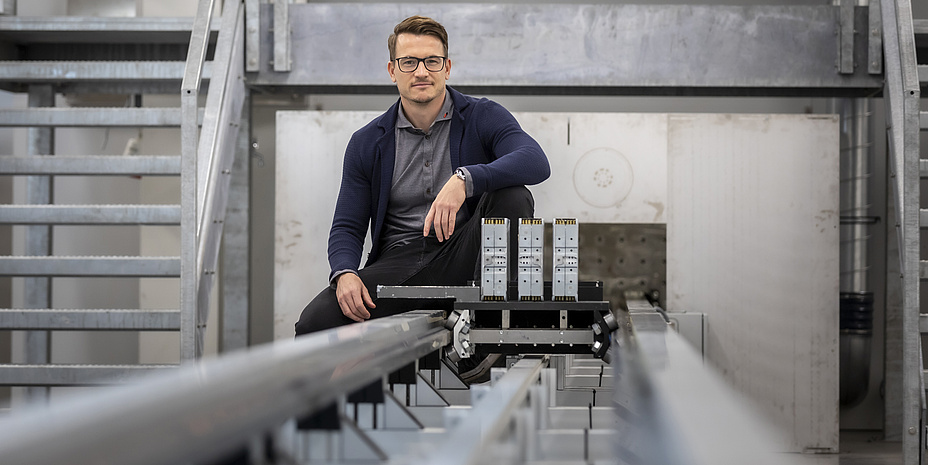“A battery is a diary of driving behaviour.”

Cats have nine, batteries hopefully soon at least two. We are talking here about lives. If a lithium battery in an electric vehicle today no longer meets the high demands and criteria that safe and high-performance electromobility requires, then it is disposed of. The raw materials used including the power still available usually end up in a landfill. Jörg Moser and the research team at Graz University of Technology (TU Graz), JKU Linz and the Institute of General Management and Organization encompassing the FFG-funded Comet project SafeLIB (Safety Aspects of Lithium-Based Traction Batteries including the Qualification for Second Life Applications) want to change this in the sub-project SEQUEL (Safety qualification criteria for increased sustainability).
The SafeLIB project at TU Graz is led by Christian Ellersdorfer (Institute of Vehicle Safety). The scientific partners involved consist of the Institute of Chemical Technology of Materials and the Institute of General Management and Organization (both at TU Graz) as well as the LIT Law Lab of Johannes Kepler University Linz (JKU), the Virtual Vehicle Research GmbH and several corporate partners.
“Batteries with a capacity under 80 per cent or a certain energy throughput or calendar age can usually no longer be used for electromobility and have reached the end of their first life,” explains Jörg Moser. “But they would still be good to use as stationary power storage, for solar systems for example.” A reliable safety assessment for car batteries used for several years under harsh operating conditions, among other things, is still lacking for such use. “Every battery is like a diary of its own use. Depending on how the vehicle has been driven, the battery has also changed differently; it degrades in a very individual way.” The SafeLIB team now uses batteries that have naturally aged over years in road traffic to find common parameters, so-called health indicators (HIs), that can provide clear information about the safety status of a battery. In this way, a State of Safety (SoS) is determined and the batteries can be categorised for different 2nd-life applications with different load requirements.
Measurements and Stress Tests
The measurements and tests are carried out at the Battery Safety Center at TU Graz, where batteries can be measured on various test benches and subjected to tough mechanical and electrical tests. “The advantage at our centre is that we can evaluate the battery according to our developed method and then subject it to tests of real and supercritical load cases to verify that it actually works as designed and is safe under the predicted life conditions.”
In addition to the technical aspect, the legal and economic side of the project is also thematically included. Data protection plays a major role here, for example, when it comes to using driving behaviour as additional information for battery evaluation. “And we have involved the Institute of General Management and Organization, with whom we are jointly developing appropriate business models for second-life applications.”
This research area is anchored in the Field of Expertise “Mobility & Production”, one of five strategic foci of TU Graz.
You can find more research news on Planet research. Monthly updates from the world of science at Graz University of Technology are available via the research newsletter TU Graz research monthly.
Kontakt
Jörg MOSER
Vehicle Safety Institute
Inffeldgasse 13/VI
8010 Graz
Phone: +43 316 873 30322
joerg.moser@tugraz.at



